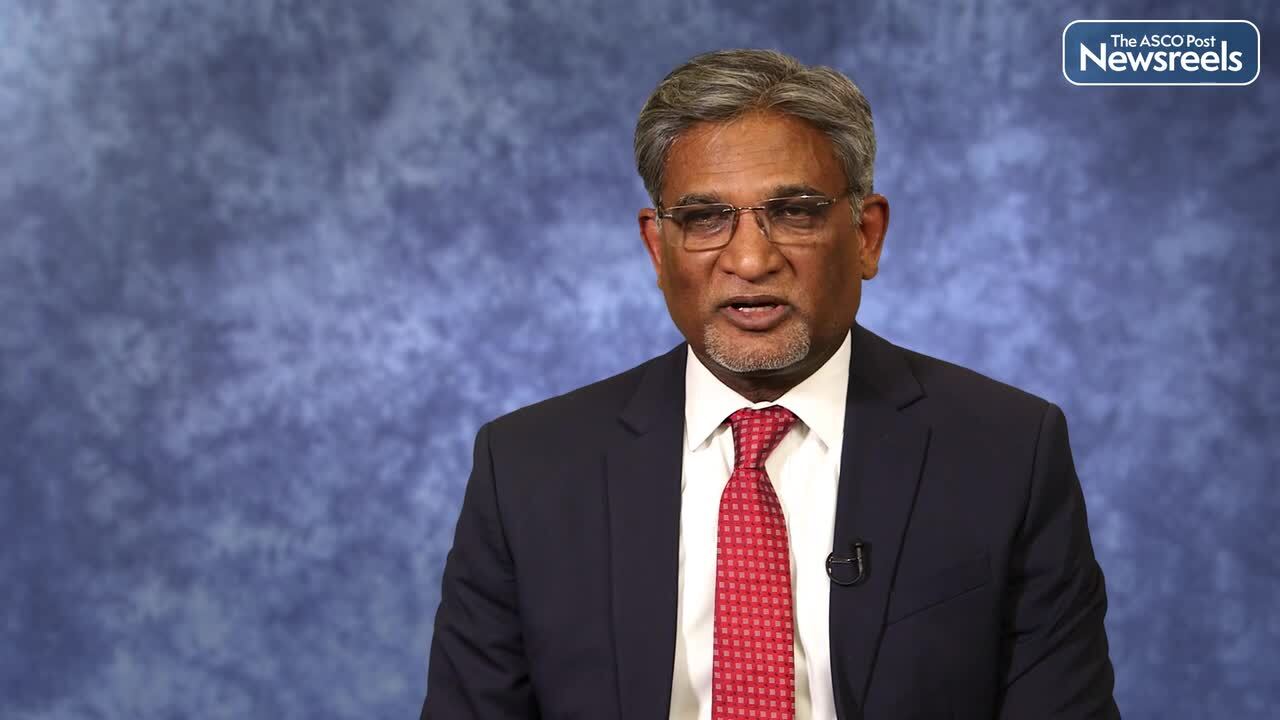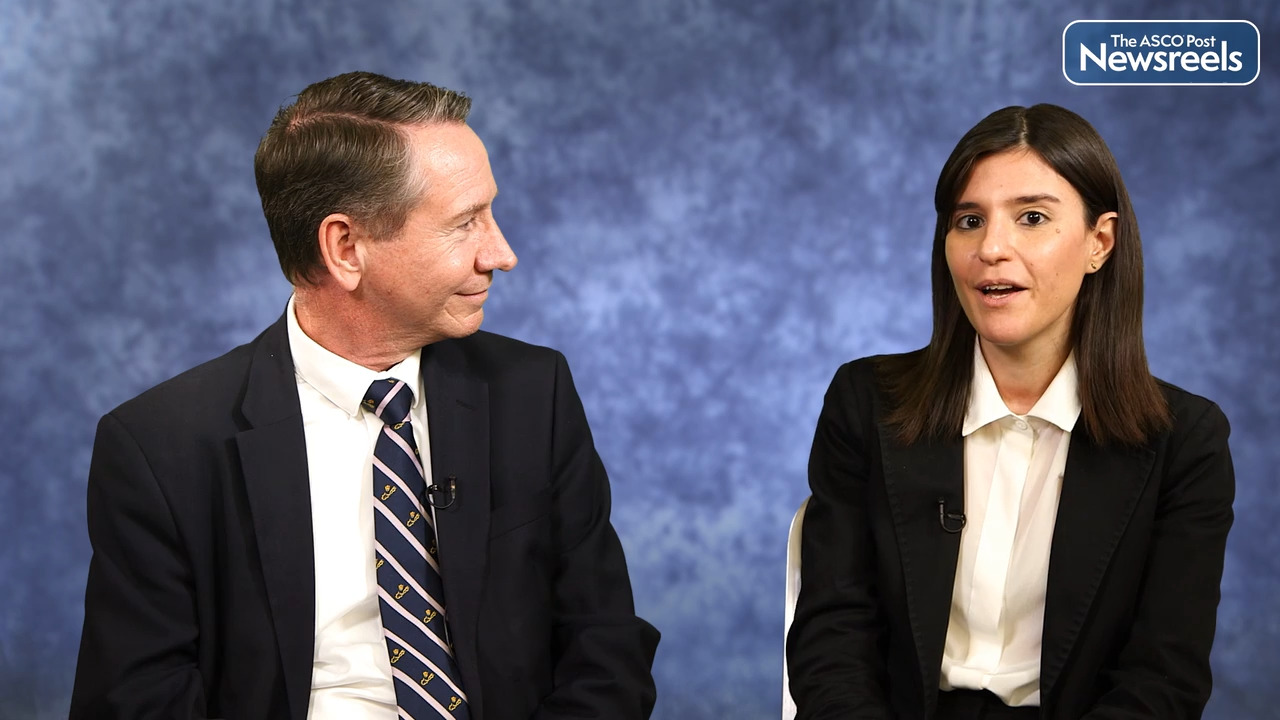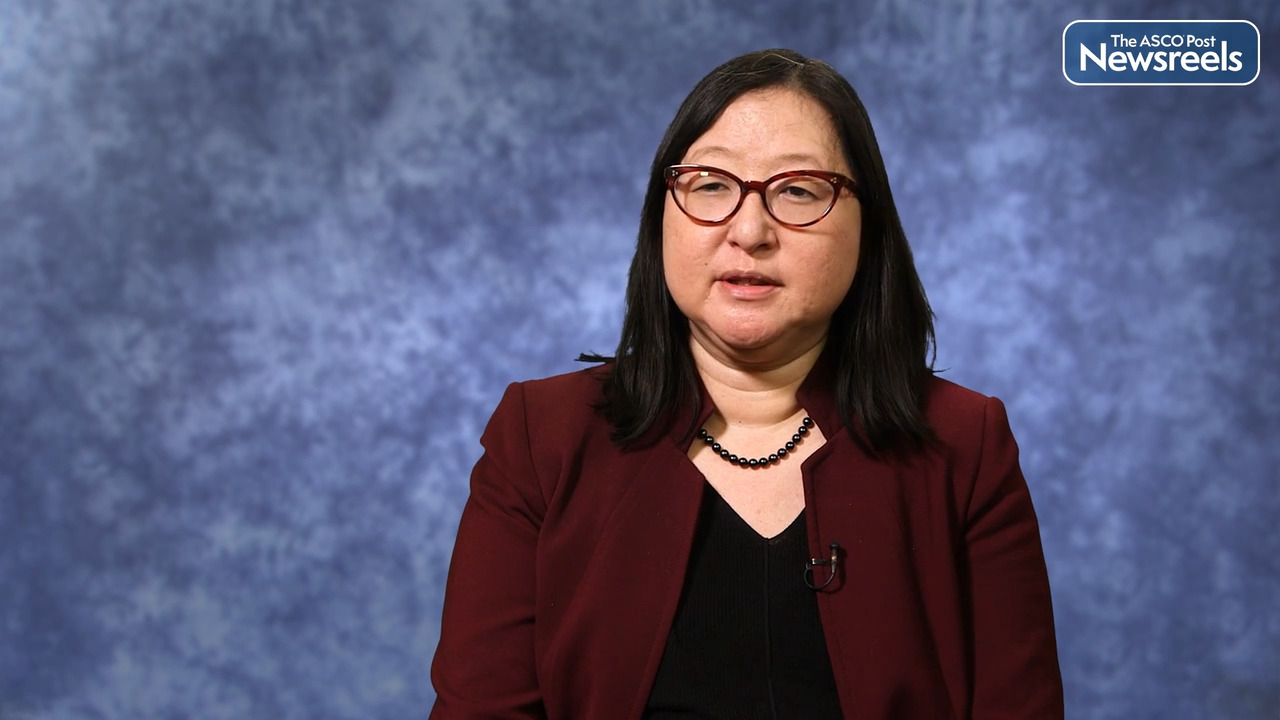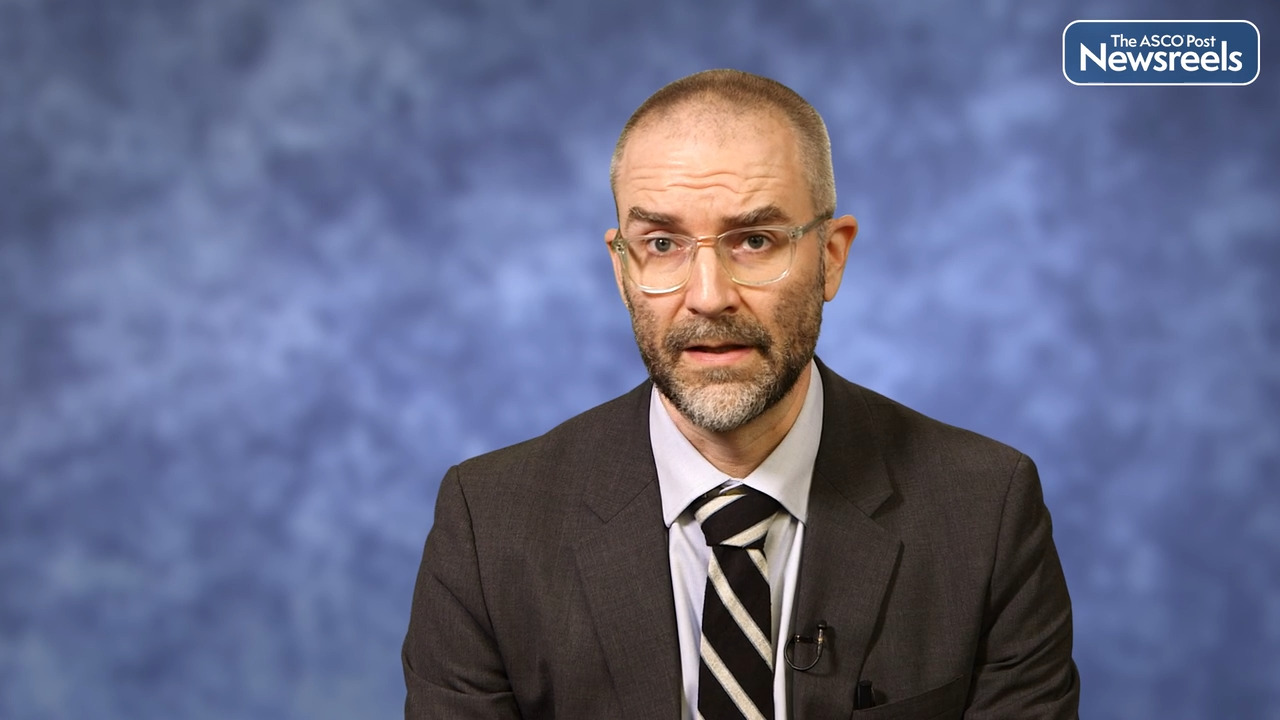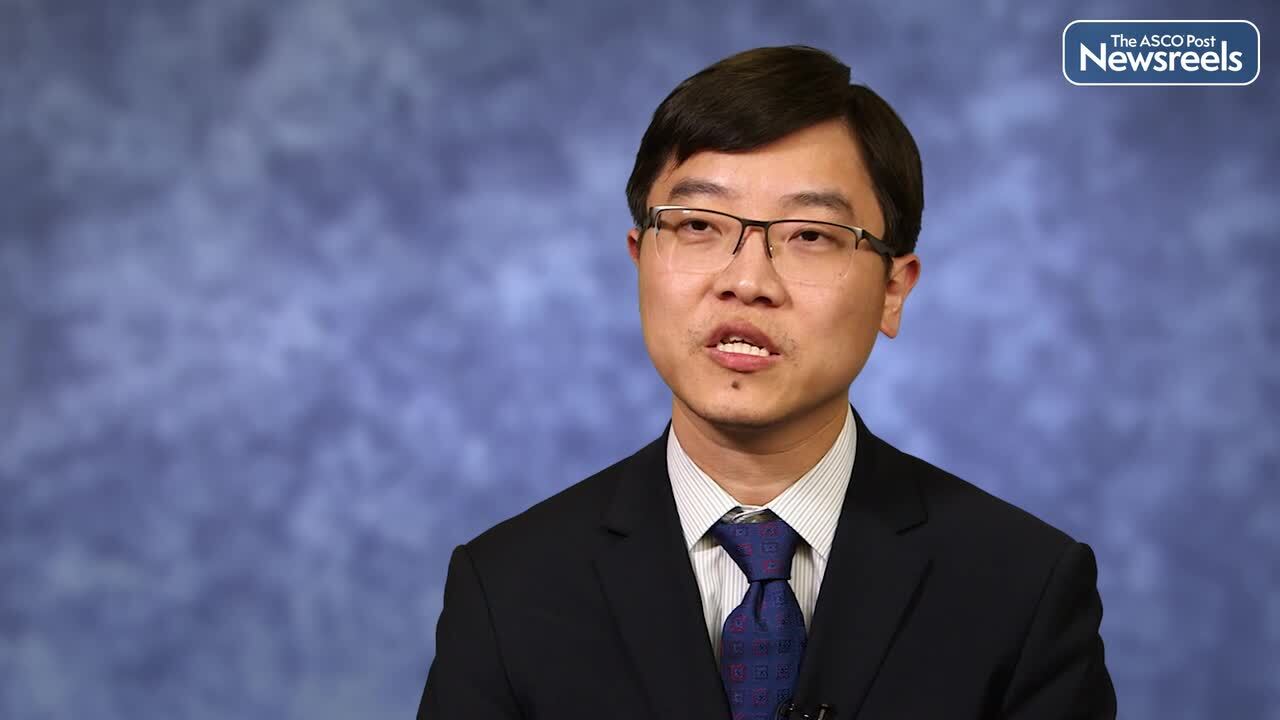Transcript
Disclaimer: This video transcript has not been proofread or edited and may contain errors.
Major progress for accomplishing in CML management. Today somebody with CML can expect to have a normal lifespan. However, with patient relapse, this can be a problem and we have multiple TKIs and multiple end of therapy. We know that patient who fail multiple TKIs can have an additional outcome and this was an error of unmet need, and that's why we and others exploring a drug called Olverembatinib in CML patients who failed multiple agents. The drug was first tested in Chinese population and the drug was found to be effective. In fact, it does inhibit the BCR able kinese protein mutated or wild type and [inaudible 00:00:42] and significant activity in China with an update shown at ASH 2022 with five years update. The dose approved in China was 40 milligram every other day. The next question was, can we move this drug to the USA? And as an elite PI, I took the drug to USA and we designed a study called bridging Study phase one B study to assess first the pharmacokinetics to see if the drug is metabolized same way as in Chinese population.
And in this trial we have three arms exploring different dose, 40 milligram, 30 milligram, 50 milligram every other day, 3, 3, 2 ratio. And we enroll patient in a chronic phase advance stage disease. The primary point was to assess the PKS of the study, PK of the drug, and subsequently of course, efficacy and safety. Where all 51 patients and this patient have failed multiple TKIs, at least two. But the measure that treat TKIs failure, they have risk factor for cardiovascular events, hypertension, and dyslipidemia around a third of them at hypertension. And then 350 eye mutation was seen in a third of this patient, which we know that is a bad signal because none of the TKIs available except few do work on these mutations. What we reported that the drug is quite effective in patient who failed multiple agents, still around 80% were able to regain their C C Y R and 50% were able to achieve a deep molecular response, what they call MMR.
Furthermore, in a group of patients who failed Ponatinib, one of the most important drug, 70% were able to respond again, which is the first ever seen. Of course the numbers are small still, but it gives a good signal that drug is effective in patient who failed Ponatinib. They achieve a C C Y R and MMR. We've seen activity as well inpatient who had 350 eye mutation and without this mutation. Furthermore, the follow up of the study was around eight to nine months. We've seen that this response are durable. In fact, out of the eight patients who achieved the deep molecular response or MMR, seven of the eight are maintaining the response. One of them was taken off the transplantation. In advance stage disease, we've seen similar activities. Two of the six patients enrolled a valuable, responded nicely despite failing prior therapies. This patient failed Ponatinib, and Asciminib, so the efficacy is there.
When it comes to safety, nothing measured. In fact, we've seen that the myelosuppression is lower than was seen in the Chinese population. The side effect, the main one was hyper pigmentation of the skin, but of nonclinical significance. Now we've seen increase of CPK, not clinically relevant. We look extensively at the vascular event because it was reported with the other TKIs. We have two patients and a [inaudible 00:03:34] one and joint [inaudible 00:03:34] and cardiac failure were possibly related, but they maintained the treatment. So the treatment was effective and maintained. Those who stopped therapy, stopped therapy mainly for to go to transplantation. So now finally we can say from the trial that the drug is safe and effective in patient population who fail everything and their unmet need for them. Moving forward what's next is still trying to define what is the best dose schedule. We believe 40 milligram every other day, but still we have to compare 30 and 40 because they're identical and moving forward for the path for approval, I think maybe the drug should be tested in patient with multiple failure and move later on to randomized trial in a second line or frontline that we to be seen based on how the data mature and evolve.
